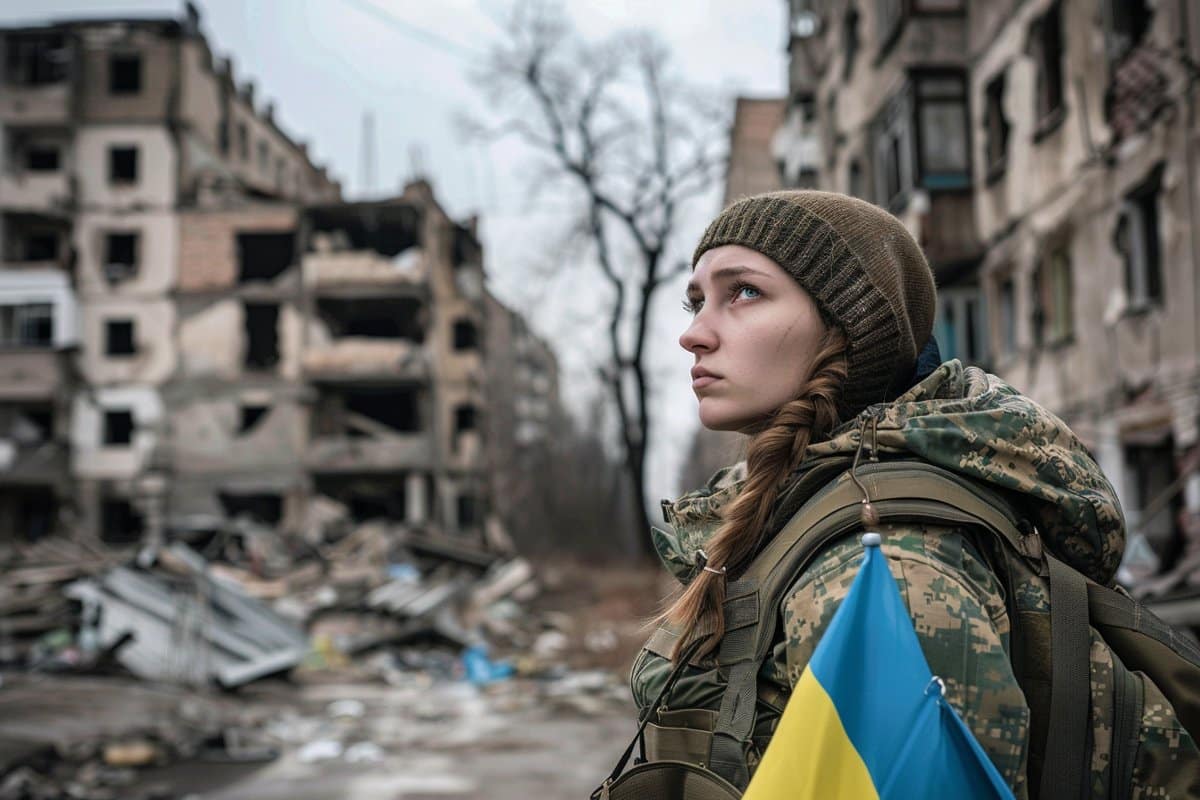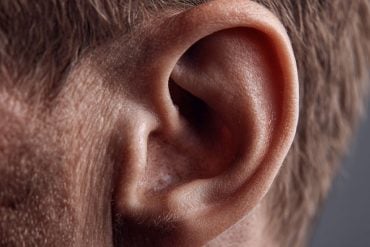Summary: A new study reveals severe mental health impacts among displaced Ukrainians due to the ongoing conflict with Russia. Surveying over 8,000 individuals, researchers found widespread PTSD, anxiety, and flashbacks, particularly among those still in Ukraine, highlighting the compounded mental strain of war and displacement.
Nearly 70% of participants reported experiencing anxiety, with a significant correlation between blast exposure and PTSD symptoms. This research underscores the urgent need for prioritizing mental health support in humanitarian efforts for both refugees and those displaced within Ukraine.
Key Facts:
- Over 8,000 displaced Ukrainians surveyed reported high levels of PTSD and anxiety.
- Nearly 70% of participants experienced anxiety, with those in Ukraine facing harsher mental health outcomes.
- The study highlights the critical need for mental health and psychosocial support within humanitarian relief efforts.
Source: PLOS
Researchers from the International Blast Injury Research Network at the University of Southampton conducted a survey to understand how the mental health of displaced Ukrainians has been affected by the ongoing war.
Their findings, published in PLOS Global Public Health, describe high levels of post-traumatic stress disorder (PTSD) and generalized anxiety among both refugees and people displaced within Ukraine.

Since the Russian invasion of Ukraine began in February 2022, at least 13 million people have been displaced from their homes. Both exposure to war and displacement—specifically loss of community, housing and economic resources—affect mental health. These impacts tend to be magnified among the elderly, those caring for children, and otherwise vulnerable populations.
Between April and July of 2022, the researchers surveyed over 8,000 participants, all of whom were either refugees or people displaced within Ukraine. The participants answered questions about their current circumstances, their mental health, and their exposures to blasts—explosions caused by bombs or other military actions.
Nearly 8 out of 10 participants who remained in Ukraine and more than half of refugees reported blast exposure. Almost 70 percent of all survey participants reported anxiety, with people remaining in Ukraine reporting higher anxiety and more frequent flashbacks to traumatic events compared to refugees.
Flashbacks are a symptom of PTSD and can range from fleeting, intrusive memories to minutes-long episodes where a person feels they are reliving the traumatic events—in this study, the frequency of flashbacks was correlated to blast exposure.
Overall, this study suggests displaced people remaining in Ukraine face poorer mental health outcomes compared to refugees, likely because of their ongoing exposure to war.
However, refugees still face considerable mental health challenges. The researchers emphasize, “Mental health and psychosocial support must be prioritized within humanitarian relief.”
The authors add: “Exposure to blast events can be incredibly distressing. Our survey of 8300 Ukrainian respondents show that almost 70% reported witnessing a blast event during the first 4 months of Russia’s full-scale invasion in 2022. Most worryingly, many respondents who were blast-exposed reported adverse mental health outcomes, including symptoms of PTSD.”
Funding: This research was funded by small grants kindly provided from Public Policy@Southampton (MH, KB, BPH), the Clinical Informatics Research Unit, University of Southampton (KB, MH), and the ESRC Centre for Population Change (BPH). The funders had no role in study design, data collection and analysis, decision to publish, or preparation of this manuscript.
About this mental health and conflict research news
Author: Charlotte Bhaskar
Source: PLOS
Contact: Charlotte Bhaskar – PLOS
Image: The image is credited to Neuroscience News
Original Research: Open access.
“Effects of blast exposure on anxiety and symptoms of post-traumatic stress disorder (PTSD) among displaced Ukrainian populations” by Ken Brackstone et al. PLOS Global Public Health
Abstract
Effects of blast exposure on anxiety and symptoms of post-traumatic stress disorder (PTSD) among displaced Ukrainian populations
Generalized anxiety and symptoms of post-traumatic stress disorder (PTSD) are common among individuals forcibly displaced during war and conflict. Blast exposure may be one important contributor of such symptoms.
The aims of this study were to provide data on blast-related experiences of internally displaced persons (IDPs) and refugees following Russia’s invasion of Ukraine, and to assess the influence of blast exposure on generalized anxiety, and PTSD flashbacks and nightmares.
An online health needs survey was distributed to Ukrainian IDPs and refugees between April and July 2022 using Facebook Ads Manager. Participants reported whether they experienced blast exposure since the beginning of the invasion, and whether they took medication for a mental health condition before the war started.
Finally, they completed measures of generalized anxiety (GAD-2), and PTSD flashbacks and nightmares. Analyses included 3253 IDPs and 5073 refugees (N = 8326). Results revealed that 67.6% of total participants– 79.9% of IDPs and 61.7% of refugees–reported blast exposure since Russia’s invasion.
Further, 69.1% (95% CI: 68.05, 70.15) of total participants met the cut-off for generalized anxiety in which further diagnostic evaluation was warranted. Compared to refugees, IDPs reported higher generalized anxiety and greater frequency of PTSD symptoms, specifically flashbacks and nightmares.
Further analyses revealed that the impact of blast exposure on flashback frequency was stronger among IDPs compared to refugees (β = 0.51; t(8322) = 11.88, p < .0001, 95% CI: 0.43, 0.60) and among participants with pre-existing mental health conditions compared to those without (β = 0.18; t(8157) = 2.50, p = .013, 95% CI: 0.04, 0.33).
Mental health and psychosocial support must be prioritised within humanitarian relief for both IDPs and refugees and especially among people with underlying mental health conditions.






